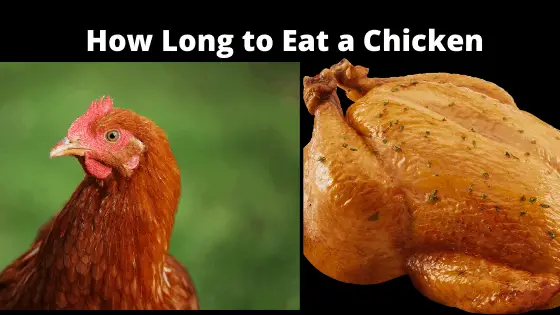How Fast do Chickens Grow?
How Fast do Chickens Grow – On Average, This occurs when the chickens are between 16 and 24 weeks of age, depending on breed, but even some individuals within a breed will develop more quickly or slowly than others. The ballpark age for when a young chicken is considered mature is 18 weeks. Intensive Farming in 6 Weeks, In Free Range Farming, is 8 Weeks and Organic Farming is 12 Weeks.
How Fast do Chickens Grow? – The fastest are Broilers 6 – 8 Weeks of age Chickens (mature chicken) are ready for Fried Chicken. When Raising Chickens for Meat. The age varies according to the Method of Farming you are doing. The earliest being 6 Weeks, the two biggest factors are Breed and Health of Chickens.
Paragraph For Amazon Resources for Raising Meat Chickens
Chickens (Chicken Lifespan) in more Natural settings can live up to 6 years of age, and 3 to 5 Years in farming operations.
| Type of Meat Chicken | Life Span | Age of Slaughter for Meat | Age begin Laying |
|---|---|---|---|
| Intensive Farming | 6 Weeks of Age | 18 weeks of age | |
| Free Range | 8 Weeks of Age | 24 weeks of age | |
| Organic | 12 Weeks of Age | 29 weeks of ages |
Here is the whole process from Raising Baby Chicks to mature Chickens in the Poultry Industry. Feeding and Growing them until they reach the freezer. Timeline for Meat Chickens. How Long Does it Take for a Chicken to Grow to Eating Size
- Eggs in Incubator – 21 days (Heat Source)
- Chicks arrive at Feed Stores at 24 – 48 Hours old
- Growing Quickly 4 – Weeks of Age (High Protein Feed)
- Chicks have Feathers 5 Weeks of Age
- Killing Cones
- Chicken fryer – Scalder – 150 Degrees for 30 seconds
- Plucker – removes Feathers – 30 Seconds
- Butchering Table
- Remove Yellow Claw feet
- Remove Head
- Separate windpipe – esophagus
- Slice around anus
- Remove / Pull Organs, intestines from Chicken
- Separate Heart / Livers / Gizzards
- Washed, Soaked, and Cleaned
- Pack in bags and Ice
12 Ways to Make Money by Chicken Farming—Extensive Guidelines for Chicken Farmers
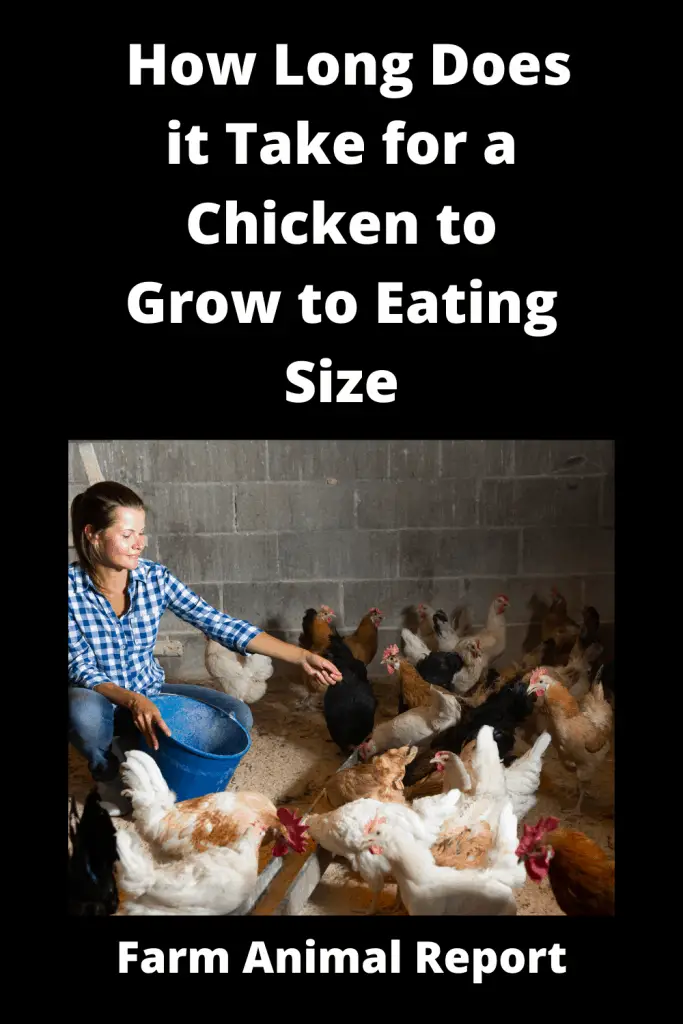
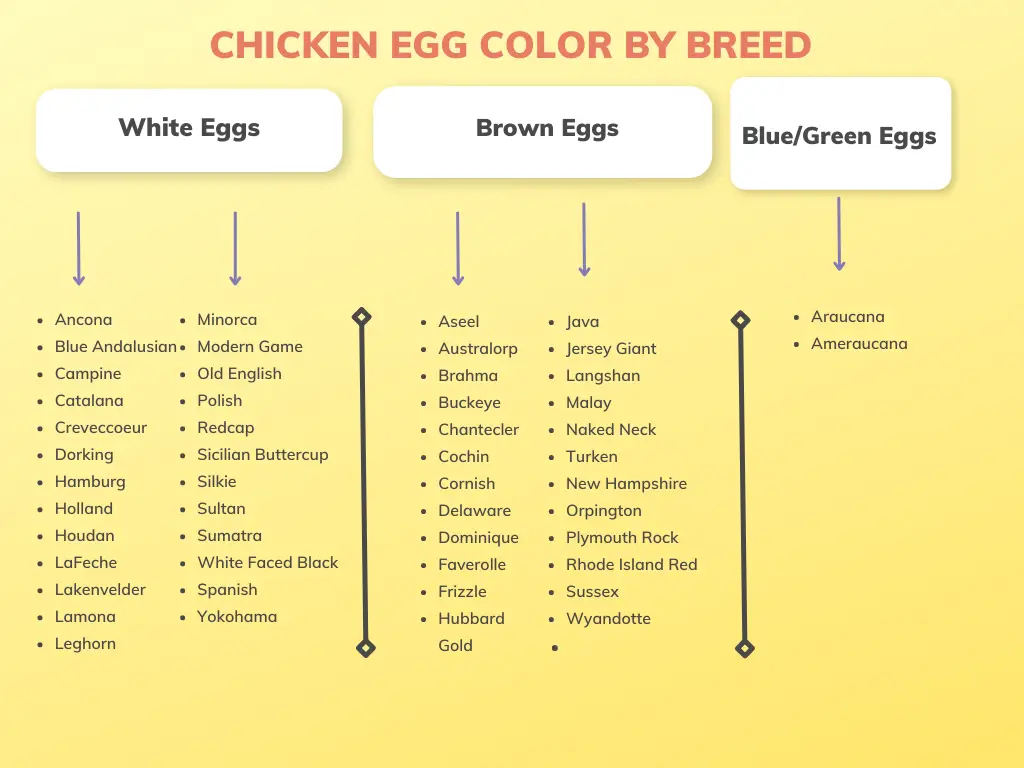
Types of Chickens ( Bred Broiler Chickens)
There are three major types of chicken Breeds
- Meat Breeds
- Laying Breeds
- Dual Purpose Breeds
Types of Chicken Breeds
| Chicken Breeds | Origin | Meat/ Layers / Dual Purpose | Finished Weight | Eggs per Week | Weeks to Slaughter |
|---|---|---|---|---|---|
| Broilers | Canada/US/Europe | Meat | 3.3 lbs | 5 | 14 Weeks |
| Cornish crosses | England | Meat | 6.5 - 8.5 lbs | 3 | 8 - 9 Weeks |
| Jersey Giants | USA | Meat ( Intended to replace Turkeys) | 13 lbs | 4 | 8 - 9 Months |
| Hertigage Breeds | 6 - 9 months | ||||
| Delaware | USA Delaware | Duo | 6.5 lbs | 4 - large | 8 Months |
| Dorking | United Kingdom | Duo | 10 - 14 lbs | 5 - med | 5 Months |
| Buckeye | USA Ohio | Duo | 6 - 9 lbs | 4 - med | 5 Months |
| Rhode Island Red | USA Rhode Island | Duo | 6 b- 8 lbs | 5-6 | 5 Months |
| Leghorn | Italy | Eggs | 4 -5 lbs | 4 | 8 Months |
| Plymouth Rock | USA - Massachusetts | Duo | 7.5 lbs | 4 | 5 Months |
| Sussex | United Kingdom | Duo | 7 lbs | 4 - 5 - large | 5 Months |
| Wyandotte | Canada | Duo | 7 - 9 lbs | 5 Months | |
| Welsummer | Netherlands | Duo | 7 lbs | 4 / Week | 5 Months |
| Hamburg | United Kingdom | Eggs | 7 lb | 4 - med | 9 weeks |
| Black Australorp | Australia | Duo | \3 - 5 lb | 5 - med | 5 months |
| Buff Orpington | England | Duo | 7 - 8 Lbs | 4 - 5 | 8 months |
| Brahma | Meat | 11 lbs | 3 - med | 5 monthss |
Origin
Meat Breeds
Laying Breeds
Dual Purpose Breeds
What is Used to Make Chickens Grow Faster (Chicken / Faster Growing Chickens)
There are several methods chicken farmers use to speed up the Chicken’s growing to market weight.. The most important factor is to do some research on the fastest-growing Chicken Breeds that have been bred for fast weight and muscle gain.
- High Protein Diet (Starter Feed)
- Tailored Selective Breeding Programs to provide Fast big Bodied Chickens.
- Purchase Faster Growing Breeds
- Midnight Feeding Schedules
Breeding plays a very important role in the Speed of Chicken Growth. Some of the fastest Growing Breeds (Breed Standard) are
- Broilers
- Cornish crosses
- Jersey Giant
- Heritage Breeds
- Delaware
- Dorking
- Buckeye
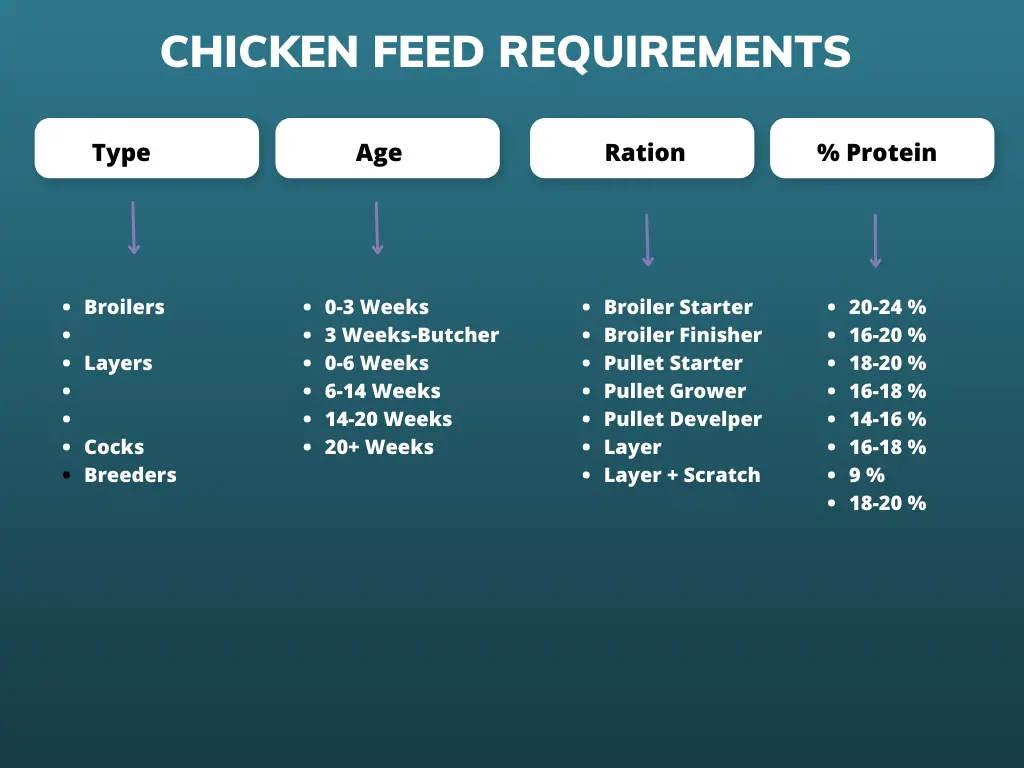
How do Vitamins and Probiotics help Chickens Grow fast
The second most important consideration is growing Chickens as fast as you can. Is there Health? Many Chicken feeds contain some of the vitamins, and amino acids, that they need to grow as fast as possible. If they are deficient in these Basic building blocks.
This will translate into slower weight gain, poor bird development, fewer eggs, unfertilized eggs, hindering rapid growth, faulty molting process, lack of new feathers, slowing of chickens’ growth rate, and also makes them prone to many more diseases.
Healthy Chickens have strong immune systems that help them ward off Diseases and parisite. Keeping a close eye on your birds will help you spot any deficiencies that you might run into. Each type of Chicken farming System will have its own drawbacks so here is a summary of what to look for
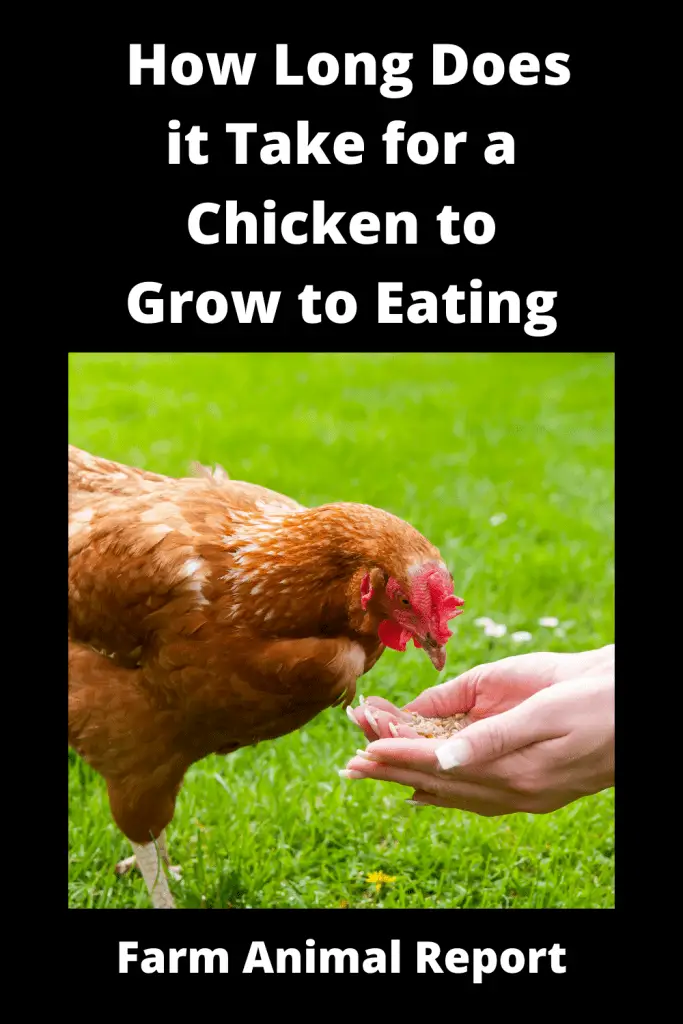
Vitamin B 12
- Deficiency – Reduced Feed Intake
- Reduced weight Gain
- Poor Feathering
- Nervous Disorders
Vitamin A
- Emancipated
- Weak
- Ruffled Feathers
- Egg production Drops
- Hatchability Decreases
- Baby Chick mortality increased
- Hemorrhage
- White Discharge from Eyes
Vitamin D3
- Osteoporosis
- Ricketts
- Poor Eggshell development
- Loss of egg production in two 3 weeks
- Retarded Growth
- leg weakness
- Soft Beaks and claws
- Struggle walking
- Hunches sit a lot
- Swaying side to side – may be the loss of equilibrium
- Skeletor Disorders
Vitamin E
- Muscular Dystrophy
- Encephalomalacia
- Exudative Diathesis
Vitamin K
- Bleeding – Blood does not Coagulate
- Internal Blood Bleeding Fatal
- Bad Cases chicks can die from Bruises
Probiotics
Baby Chicks inside the digestional system are still developing. Many farmers use probiotics for their young flocks, in their first week of life. Its benefits are that it populates the chicken’s bacteria with good bacteria, and helps the digestive system to complete forming quickly.
Baby chicks can easily get back bacteria from droppings. Some farmers feed their chicks some type of fermented feed to do the same thing.
Chickens can eat too much-fermented feed, but this usually does not happen because chicken regulates the amount of feed they eat.
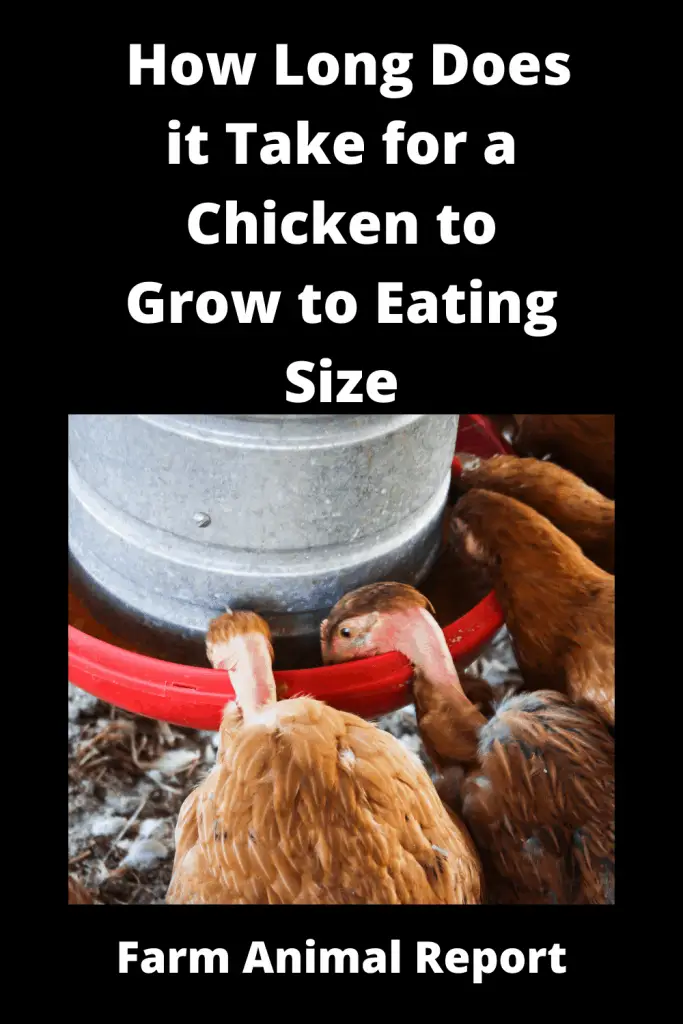
How Long Does it take to grow a Chicken with Growth Hormones
Growing chickens with growth hormones have been illegal in the United States since the 1950s. Today it is not used in commercial farming operations.
Some labels list that they are hormone-free. But in reality, there are none that are using hormones that are selling in the United States. All Chickens are hormones Free. Sexual Maturity depends on Breeds.
How Fast Does a Chicken Grow on Steroids
This is the same situation. There are no steroids in Chickens that are raised and sold in the United States today. Any Chicken you buy is Steroid Free.
Do They put Steroids in Chicken?
No, No Chicken sold in the United States has Steriods, it is all Steroid Free
What are Chickens Injected with to make them Bigger
What is Chicken Plumping
Chicken producers have since the 1970s begun enhancing or injecting fresh chicken meat with saltwater solutions, sometimes chicken broth, they maintain that this process of Plumping is supposed to make the meat taste better.
Chicken meat is also sold by lb weight, so estimated up to 30 % of the chicken weight is saltwater.
When you add saltwater, this happens with other meats also, but it helps the meat to keep its salt content which helps in preservation in shipping. This has been taking place in the United States since the 1970s.
It is injected into the meat in Chickens prior to shipment by multi Needle machines.
Are Chickens Fed Antibiotics
Yes, and No, Organic Chicken is Free from antibiotics. Chickens are given antibiotics for parasite control and if they are ill. They legally have to have antibiotics cleared from their systems before Slaughter.
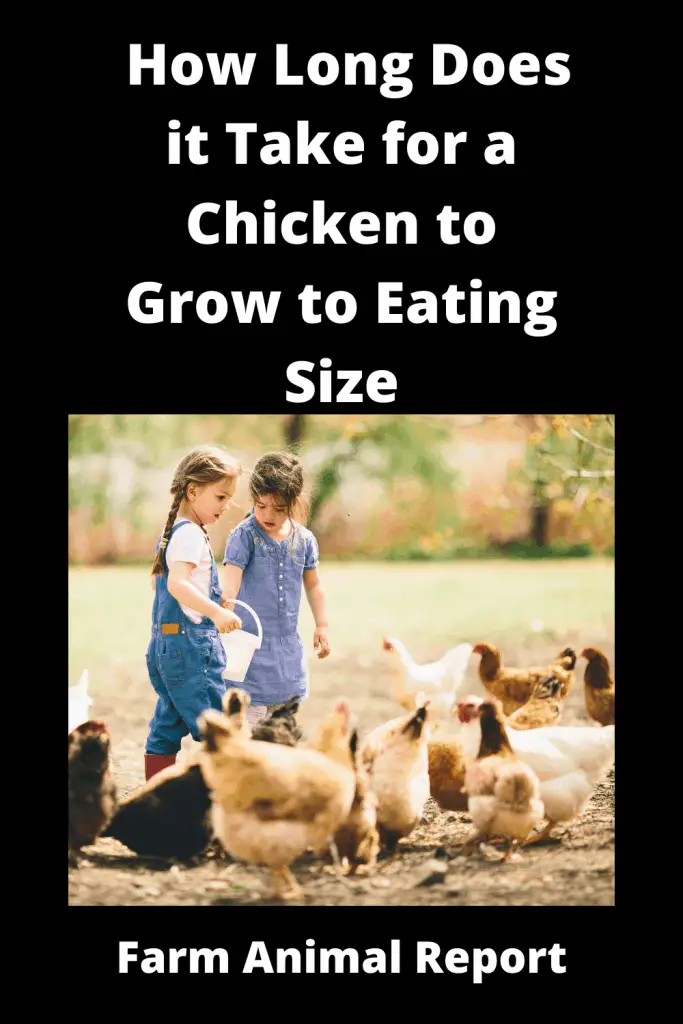
Antibiotics are in a lot of Animal Feeds. The antibiotics usually added are
- Chlortetracycline
- Procaine Penicillin
- Oxytetracycline
- Streptomycin
Benefits of Using Benefits
- Increasing Efficiencies
- Increasing Growth Rates
- Disease Prevention
- Increased Egg Production
- Increased hatchability
Disadvantages of Using Antibiotics
- Retain the strains of bacteria – resistant to antibiotics
- Major Disadvantage is transmitting the bacteria Resistant to another host thru
- Feces
- Slaughtering
- Eating of meat
How Long Does it take a Chicken to Grow Naturally
Four Months ( 4 Mo ) to Fried Chicken. Chickens can be raised Naturally without supplements and chicken feeds. Chickens do grow slower because they are eating food as they find it. This is found in many backyard chicken raising.
Is Eating Chicken Everyday Healthy
Yes, It is very Healthy to eat organic Chicken. The price is usually higher because it is harder to raise, especially in larger operations some of the benefits are
- No -Pesticides
- No Anti – biotics
- Not Injected with Saltwater – Plumping
- This is subjective – some hold it taste Better
- No GMO’s
- No Synthetic Pesticides.
How Long to Grow Chickens?
Chickens can grow to full size in as little as 12 weeks. Also, they lay eggs when grown to full size. It’s better to wait until your chickens are fully grown before you eat their eggs because the nutrients and minerals change once the chicken is mature enough for egg-laying.
The optimal age that a chicken should be allowed to grow before slaughter is 16 weeks.
Chickens that are less than 12 weeks of age will only get up to one egg per week, but chickens older than 13 weeks can lay two eggs a day. If you’re raising them for meat it is best not to start feeding more food around five or six weeks of age.
Simply feed them as normal and once they reach the correct weight take them to be slaughtered.
Chickens will start laying eggs earlier if you use lights that are on a timer, so set it for 16 hours per day beginning at four weeks old. You can also increase egg production by feeding your chickens more food than usual.
their own.
In general, chickens will take about two years from the time they hatch until they start laying eggs or producing enough meat for humans to eat. This timeline includes giving them food and water every day as well as providing adequate space for them to live in during this period.
How Long does it take for a Chicken to Grow?
A chicken typically takes between six and eight weeks to reach full size. However, this can vary depending on the breed of chicken. Some chicken breeds grow more quickly than others, while some take a bit longer to mature. In general, the larger the breed of chicken, the longer it will take to reach full size.
For example, a bantam chicken may only take four or five weeks to mature, while a standard chicken may take up to ten weeks. Ultimately, the amount of time it takes for a chicken to grow will depend on its individual growth rate and genetics. However, most chickens will be fully grown by two months of age.
Meat Chickens have been raised to be Faster Growing to reach Market weight
In the 1950s, the average chicken took about 16 weeks to reach “market weight” – the point at which they were ready to be slaughtered and sold. Today, that number has been cut in half, with some chickens now reaching market weight in as little as 6 weeks.
This is thanks to a process of selective breeding, in which chickens with the fastest growth rates are selected to become the parents of the next generation.
As a result of this process, meat chickens today are much larger and grow much faster than their counterparts from just a few decades ago.
While this has helped to keep chicken meat affordable for consumers, it has also resulted in some serious animal welfare concerns. Chickens raised for meat suffer from a range of health problems due to their rapid growth, and many are crippled by their own weight before they even reach the slaughterhouse.
As a result, there is an increasing movement among consumers for slower-growing, “heritage” chicken breeds. These chickens may take longer to reach market weight, but they have a better quality of life and their meat is said to be more flavorful.
Egg Laying Chickens are Slower Growing than Broiler Chickens
Egg-laying chickens are typically slower-growing than broiler chickens. Broiler chickens are bred and raised for meat production, while egg-laying chickens are bred and raised for egg production. Egg-laying chickens typically have smaller bodies and less muscle mass than broiler chickens.
The amount of time it takes for an egg-laying chicken to reach maturity is typically longer than the amount of time it takes for a broiler chicken to reach maturity. This is due to the fact that egg-laying chickens are bred to lay eggs, not to grow quickly. As a result, egg-laying chickens typically have a slower growth rate than broiler chickens.
Baby Chickens will generally start laying
Baby Chickens will generally start laying eggs when they reach adulthood. This process usually takes around six months, although it can vary depending on the breed of chicken. Eggs are typically laid in the morning, and each chicken will usually lay one egg per day.
The eggs are then collected and incubated, either by the chicken herself or by a mechanical incubator. After around 21 days, the chicks will hatch and begin to grow into full-fledged chickens.
Baby Chickens will then start to lay eggs of their own, starting the cycle anew. Consequently, those who wish to raise chickens for their eggs must be patient and have a steady supply of food and water available.
Baby Chicks are usually harvested as chicken meat around
Chickens are a common farm animal, raised for their meat and eggs. Baby chicks are usually harvested as chicken meat around six to seven weeks of age. However, some people choose to keep chickens as pets.
Chickens are social animals and enjoy being around other chickens. They will also bond with humans if they are raised around them from a young age. Chickens typically live for around five years, but some have been known to live for much longer.
Chickens are omnivorous, eating a variety of foods including insects, seeds, and leaves. They also need access to water. Chickens typically lay one egg per day, although this can vary depending on the individual chicken. Chickens are interesting creatures and make loyal pets.
What effect does Chicken Coop size have on Growing Chickens?
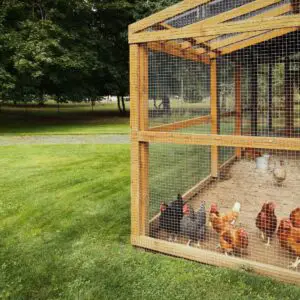
When it comes to chicken coops, size definitely matters. A small coop will not provide enough space for your chickens to move around freely, leading to overcrowding and stress. In addition, small coops generally have poor ventilation, which can lead to respiratory problems.
On the other hand, a large chicken coop can be too expensive and difficult to maintain. It is important to find a balance that provides your chickens with enough space to be comfortable while also being practical for you. The type of chicken you are raising will also play a role in determining the ideal coop size.
For example, bantam chickens can get by with less space than larger breeds. Ultimately, the best way to determine the right size for your chicken coop is to consult with a professional or experienced chicken keeper. They will be able to help you take into account all of the factors that will affect your specific situation.
What Effect does Layer Feed have on how fast a Chicken will Grow?
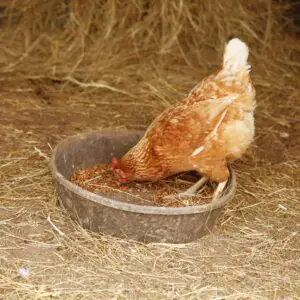
Layer feed is a type of chicken feed that is designed to promote healthy egg (first Egg) production. In addition to providing essential nutrients, layer feed also helps to promote faster growth.
As a result, chickens that are fed layer feed will usually grow larger and produce more eggs than those that are fed a standard diet.
There are many different types of layer feed available, so it is important to choose a brand that is right for your chickens. However, all types of layer feed will help to promote faster growth and healthy egg production. So if you’re looking to get the most out of your chickens, be sure to give them a quality (complete Feed) layer feed.
Unique Facts about How Fast do Chickens Grow
- Chickens grow quickly, with some breeds reaching full maturity in as little as six weeks.
- The rate of growth for chickens depends on the breed, and some can reach full size in just four weeks.
- Some breeds of chickens grow significantly faster than others, with some varieties capable of reaching full size in just two weeks.
- Larger breeds of chickens tend to grow more slowly than smaller varieties.
- On average, a chicken can expect to reach full maturity in about 12 weeks.
- Many factors can affect the growth rate of chickens, including diet, environment, and genetics.
- Protein-rich diets are especially important for helping chickens grow quickly and healthily.
- Chickens can reach full size in as little as eight weeks if they are housed in a warm and dry environment.
- Poor nutrition or overcrowding can slow the growth of chickens significantly.
- The laying rate of chickens is largely determined by the age at which they reach full maturity.
Final Thoughts – How Long Does it Take for a Chicken to Grow
There are a number of factors that determine how long it takes to grow chickens. The most important factor is the type of breed being raised. Some breeds take longer than others, but all require some time and care to reach maturity so they can lay eggs or produce meat


